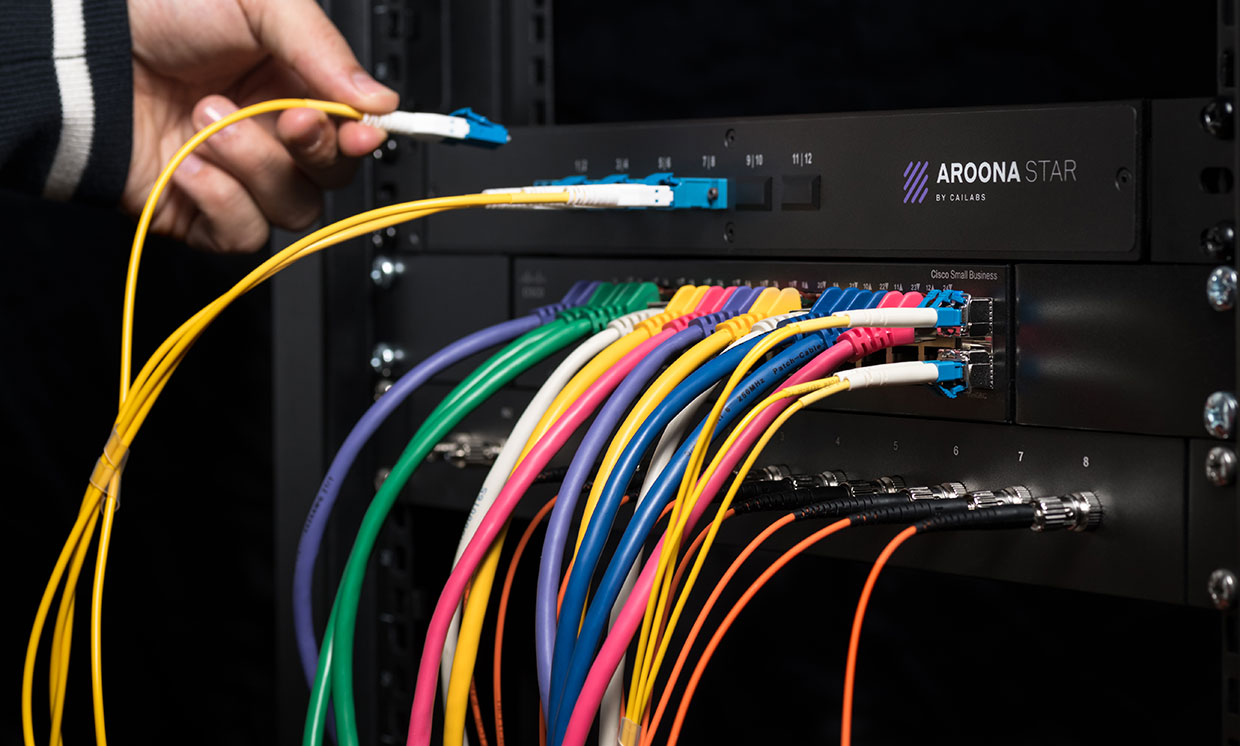Blog

How Is Fiber-optic Better Than Your Traditional Cable Internet Connection?
Fiber-optic broadband has brought a new era of high-speed internet experience with it. Today it is accepted as the future of broadband as it offers numerous benefits to businesses and individuals along with offering a great speed for surfing as well as downloading.
A fiber-optic cable is made up of extremely thin strands of glass or plastic, known as optical fibers. These strands are less than a tenth as thick as a human hair but can do a lot with just that. This gives fiber-optic broadband an advantage over our traditional cable internet that utilizes copper cable (coax) and transmits data using electricity. On the other hand, fiber-optic uses cutting edge technology to transfer information much faster and over great distances via small, flexible strands of glass that transmit light.
Advantages of fiber-optic over cable internet
1. SpeedWhen it comes to speed, fiber-optic is more preferable as it sends data faster than the basic cable. Since it's delivered on a dedicated line, it facilitates more consistency in speed than cable. This consistency is maintained even during peak usage times.
2. CostFiber-optic is undoubtedly a little expensive that the cable internet at first, but when you compare its benefits over the other, money won't matter much. Since more and more internet providers are now switching to fiber-optic option, the price gap is shrinking. It's becoming more cost-efficient to install this network that to maintain antiquated copper systems.
3. ReliabilitySince fiber-optic is immune to many of the conditions that cable internet is susceptible to, it is considered more reliable.
- It is less likely that fiber-optic will go down during a power outage.
- The private network installed in your home makes fiber-optic harder to hack.
- Fiber-optic can withstand temperature fluctuations compared to cable, and can even be submerged in water.
- As fiber-optic is made of glass, there is no electricity involved which in turn protects it against interference from nearby power lines or high voltage electrical equipment.
4. BandwidthThe traditional cable internet uses copper wire infrastructure which was originally designed for transmitting voice calls, so the demand for bandwidth wasn't that high. But by investing in fiber-optic, internet can significantly increase your bandwidth potential.
5. Cable SizeThe speed of internet transmitted using the copper cable is directly correlated with the weight of cable used. For businesses to achieve higher speeds, more cable is used which in turn requires more space in the telecommunications room.
On the other hand, the speed of fiber-optic is not related to its size, and weighs far less than copper. This makes it easier to use and far less demanding even in a limited space.